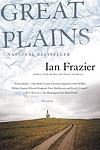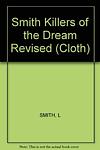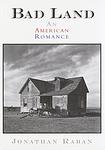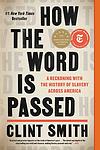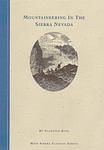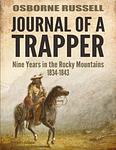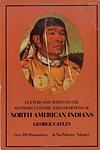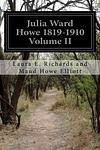The Greatest "American History, Travel" Books of All Time
Click to learn how this list is calculated.
This list represents a comprehensive and trusted collection of the greatest books. Developed through a specialized algorithm, it brings together 300 'best of' book lists to form a definitive guide to the world's most acclaimed books. For those interested in how these books are chosen, additional details can be found on the rankings page.
Genres
The "American History" category encompasses a broad range of books that delve into the events, figures, and forces that have shaped the United States from its pre-colonial days to the present. This genre includes works on pivotal moments such as the American Revolution, Civil War, and civil rights movements, as well as studies of political, social, and cultural developments across various eras. It covers biographies of influential leaders, analyses of policy changes, and examinations of societal shifts. Whether providing comprehensive overviews or focusing on specific incidents or decades, books in the American History category aim to illuminate the complexities of the nation's past, offering readers insights into the events that have defined the American experience and the context for its ongoing evolution.
The "Travel" category of books encompasses a wide range of literature that focuses on exploring new places, cultures, and experiences. These books can be memoirs, guidebooks, travelogues, or even fiction that takes the reader on a journey to a different part of the world. The genre is characterized by its emphasis on adventure, discovery, and personal growth, as well as its ability to transport readers to far-off lands and immerse them in new and exciting cultures. Whether you're looking for inspiration for your next trip or simply want to explore the world from the comfort of your own home, the Travel category has something for everyone.
Countries
Date Range
Reading Statistics
Click the button below to see how many of these books you've read!
Download
If you're interested in downloading this list as a CSV file for use in a spreadsheet application, you can easily do so by clicking the button below. Please note that to ensure a manageable file size and faster download, the CSV will include details for only the first 500 books.
Download-
1. Facundo by Domingo Faustino Sarmiento
"Facundo" is a socio-political critique and historical account of Argentina during the first half of the 19th century. The book examines the life of the gaucho, Facundo Quiroga, who becomes a powerful and ruthless warlord, illustrating the destructive effects of caudillismo (military dictatorship) on society. The author uses Quiroga's life to delve into broader themes such as the struggle between civilization and barbarism, the need for education, and the dangers of unchecked political power.
-
2. Journals by Meriwether Lewis, William Clark
This book is a compilation of the detailed journals kept by two explorers during their expedition across the American West, from 1804 to 1806. The journals provide a first-hand account of their encounters with Native American tribes, their observations of new plant and animal species, and the challenges they faced while traversing uncharted territories. The explorers' writings not only offer insights into their historic journey but also serve as a valuable resource for understanding early 19th-century American history and the country's westward expansion.
-
3. Great Plains by Ian Frazier
"Great Plains" is a travelogue that takes readers on a journey through the vast expanse of the American Great Plains, exploring its history, geography, and culture. The author travels from North Dakota to Texas, delving into the history of Native Americans, pioneers, and outlaws. The book provides a detailed account of the region, its people, and its significance in shaping the American West, offering a vivid portrait of the landscape and its influence on the country's identity.
-
4. Killers of the Dream by Lillian Smith
"Killers of the Dream" is a non-fiction book that examines the roots of racism in the American South, particularly in the author's home state of Georgia. The author argues that segregation is not only harmful to black people, but also to whites, as it distorts their view of reality and their own humanity. The book explores the psychological, social, and cultural effects of racism, and calls for an end to racial discrimination and segregation.
-
5. Great Heart by James West Davidson, John Rugge
"Great Heart" is a riveting historical account of the 1903 expedition across Labrador, one of the most inhospitable regions in North America. The book details the journey of four men and their struggle for survival against the harsh elements. The narrative is enriched with the explorers' own words, taken from their journals, giving readers an intimate look into their extraordinary adventure. The book is a testament to the human spirit and the will to survive, even in the face of insurmountable odds.
-
6. Zeitoun by Dave Eggers
The book is a non-fiction account of a Syrian-American contractor named Zeitoun who decides to stay in New Orleans during Hurricane Katrina. Despite the chaos, he paddles around the city in a canoe, helping those he can. However, he is arrested and accused of looting, leading to a harrowing experience in prison. The narrative explores themes of family, survival, and the breakdown of civil liberties in times of crisis.
-
7. Bad Land: An American Romance by Jonathan Raban
This book is a historical exploration of the American West, specifically the region of Eastern Montana. The author delves into the experiences of the British and Scandinavian settlers who were lured to this area in the early 20th century by railroad advertisements promising fertile farmland. Through a combination of historical research, personal narratives, and travelogue-style observations, the author paints a vivid picture of the harsh realities these settlers faced, including drought, isolation, and economic hardship. The book also reflects on the lasting impact of these experiences on the region's culture and identity.
-
8. How The Word Is Passed: A Reckoning With The History Of Slavery Across America by Clint Smith
"How The Word Is Passed" is a powerful and thought-provoking exploration of the legacy of slavery in America. Through a series of vivid and evocative essays, author Clint Smith takes readers on a journey across the United States, visiting sites that are deeply connected to the history of slavery and its aftermath. From Monticello to Angola Prison, Smith offers a nuanced and insightful look at the ways in which slavery has shaped our country and continues to impact our lives today. With a clear-eyed and compassionate approach, "How The Word Is Passed" is a must-read for anyone interested in understanding the complex and ongoing legacy of slavery in America.
-
9. The Exploration of the Colorado River by John Wesley Powell
This book is a firsthand account of the first U.S. government-sponsored passage through the Grand Canyon. The author, a one-armed Civil War veteran, and his team of nine men risked their lives to accomplish this feat in 1869. They faced dangerous rapids, food shortages, and potential attacks from Native American tribes. The narrative provides detailed descriptions of the geography, geology, and Native American inhabitants of the region, offering invaluable insights into the uncharted territory of the American West.
-
10. The Oregon Trail by Francis Parkman
"The Oregon Trail" is a historical account of a two-and-a-half month summer tour in 1846 of the U.S. states of Nebraska, Kansas, Colorado, and Wyoming. The book captures the experiences of the author and his companion as they journey from St. Louis to the Rocky Mountains and back. The narrative is rich with descriptions of the landscapes, wildlife, and people they encounter, including several Native American tribes. The book provides a vivid depiction of the West before industrialization and settlement.
-
11. Mountaineering in the Sierra Nevada by Clarence King
This book is a collection of personal accounts and observations about climbing in the Sierra Nevada during the late 19th century. The author details his experiences, including the physical and mental challenges, the breathtaking beauty of the landscape, and the thrill of exploration and discovery. He also provides insightful commentary on the geological features of the region, the indigenous people he encountered, and the impact of the Gold Rush on the environment and society.
-
12. Life in the Far West by George Frederick Ruxton
"Life in the Far West" is a vivid account of the early American frontier, highlighting the lives of trappers and traders in the Rocky Mountains. The narrative, based on the author's own experiences, provides detailed descriptions of the rugged lifestyle, the diverse characters encountered, and the often dangerous and violent events that occurred. It also offers an insightful look into the interactions between the settlers and the native tribes, making it a valuable historical resource.
-
13. The Adventures of Captain Bonneville by Washington Irving
This book chronicles the real-life expeditions of a U.S. Army officer in the American West. The officer, intrigued by the vast frontier, takes a leave of absence from the military to explore the wilderness, trade with Native American tribes, and hunt game. His adventures include encounters with various Native American cultures, survival in harsh conditions, and exploration of uncharted territories. The narrative presents a vivid picture of the American West during the era of Westward Expansion.
-
14. Journal of a Trapper by Osborne Russell
"Journal of a Trapper" is a vivid first-person account of a trapper's life in the Rocky Mountains during the early 19th century. The author details his experiences over a nine-year period, providing a unique perspective on the American West. His narratives include encounters with various Native American tribes, observations of the wildlife, and descriptions of the breathtaking landscapes. The book serves as an important historical document, offering insights into the fur trade era and the exploration of the American frontier.
-
15. Letters and Notes on the Manners, Customs, and Conditions of the North American Indians by George Catlin
This book is a detailed and vivid account of the author's travels among the Native American tribes of the Great Plains during the 19th century. The author, an artist, presents an ethnographic record of his observations and experiences with different Native American tribes, including their customs, manners, rituals, and way of life. The book, which includes numerous sketches and paintings of tribal members and scenes, is considered a valuable historical record of Native American culture during this period.
-
16. Narrative of a Journey Across the Rocky Mountains to the Columbia River by John Kirk Townsend
This book is a first-hand account of an adventurous journey across the Rocky Mountains to the Columbia River. The author shares his experiences and observations from the trip, providing detailed descriptions of the terrain, wildlife, and Native American tribes he encountered along the way. His narrative offers a fascinating glimpse into the American West during the early 19th century, serving as both a historical document and a captivating adventure story.
-
17. The Wordy Shipmates by Sarah Vowell
"The Wordy Shipmates" is a historical narrative that explores the journey and lives of the Massachusetts Bay Colonists, who left England in the 1630s in pursuit of religious freedom in America. The book delves into the paradoxes of these Puritans, who were both freedom seekers and authoritarians, and their influence on American identity. It also provides a detailed look at their relationships, conflicts, and the hardships they faced, all set against the backdrop of their religious and political beliefs.
-
18. Julia Ward Howe by Laura E. Richards, Maud Howe Elliott
This biography provides an in-depth look into the life of Julia Ward Howe, a prominent abolitionist and social activist best known for writing "The Battle Hymn of the Republic." The book explores Howe's early life, her marriage, and her growing involvement in social reform movements, including women's suffrage. It also details her literary contributions and her enduring legacy in American history.
-
19. The Life of the Mind in America by Perry Miller
This book is a comprehensive exploration of the intellectual history of America, tracing the development of thought and philosophy from the Puritan era to the mid-twentieth century. It examines the evolution of American intellectual life, providing a detailed look at significant thinkers, their ideas, and the cultural context in which they emerged. The book also underscores the influence of European thought on American intellectualism, highlighting the tensions and synergies between the two.
Reading Statistics
Click the button below to see how many of these books you've read!
Download
If you're interested in downloading this list as a CSV file for use in a spreadsheet application, you can easily do so by clicking the button below. Please note that to ensure a manageable file size and faster download, the CSV will include details for only the first 500 books.
Download

